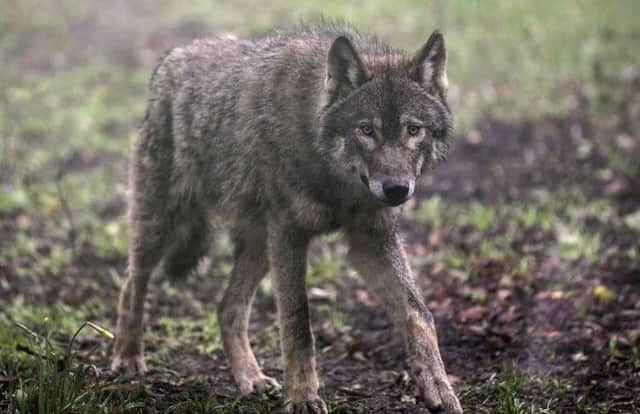Comment: Rural development plans could be a howler


For those not familiar with his writing, there were wonderfully scary stories of packs of wolves circling the lone backwoodsman as he sat at his camp fire. As the fire gradually burned down to embers, the wolves moved closer and closer …
For some with vivid imaginations, the re-introduction of this species in what is called “rewilding” the Scottish countryside, there will be large numbers of solitary hillwalkers consumed by wolves.
Advertisement
Hide AdAdvertisement
Hide AdFor farmers, bringing back wolves to this country could be considered a negative as these animals, in common with all other predators, will target as easy prey as they can, and sheep are considerably easier cornered and killed than a wiry and fleet-of-foot walker.
Turning this issue into a positive for farmers, if wolves are to be reintroduced, farmers should be compensated for any loss of livestock. This suggestion comes as the details for the next Scottish Rural Development Programme are about to be announced, and inclusion of such a compensatory package would be essential.
“Rural development?”, I hear you say. “What is there about killing sheep and lambs that qualifies as rural development?”
The answer apparently lies in the number of people who will come and visit our country in order to see “red in tooth and claw” wildlife.
Farmers may also recall European agricultural commissioner Dacian Ciolos’s claim one of the main reasons the Common Agricultural Policy held on to the majority of its budget was because it could deliver wider public benefits than just providing food.
Well here, through the payment of additional cash to sheep farmers in areas where wolves will be encouraged to roam, is an opportunity increase the diversity of animal life in our countryside.
To counter any criticism that the proposal is cruel, it is necessary to remind people that sheep are used to mop up, or host, blood-sucking ticks on grouse moors. The financial reward from keeping grouse free from ticks being greater than the pain suffered by sheep riddled with blood swollen ticks.
Back to the killing proposal, it might be claimed that proof of loss might be difficult but an extra payment for every ewe in the affected area would get round that problem.
Advertisement
Hide AdAdvertisement
Hide AdThe same solution could solve the problem sheep farmers are having in areas where sea eagles have been introduced. These farmers are now losing large numbers of lambs to these aerial predators, so why not have additional payments from the public purse for those farming within a certain radius of nesting sea eagles.
If there is more than one nest or if there are young single eagles, the cash support would be increased.
Some questions might be asked in official quarters if the support cash was paid out on a headage basis; that being a big no-no as far as the bureaucrats are concerned.
However, the extra cash would not be linked to production. Quite the reverse in fact with all the livestock being killed; it would be a negative production policy. This is a policy which might confound the policy makers.
In a similar vein, great swathes of the country are now beset by increased numbers of geese. Apart from the overall goose population rising, there is the problem of increasing numbers of lazy geese which are not migrating. Having given up their long flights, they seem perfectly happy just to hang around their winter feeding grounds for 12 months each year.
Again an extension of the compensation scheme currently operated in Islay to other goose feeding areas would be a big plus for farmers.
If the compensation policy needed any endorsement, it could come from Ireland, where the Irish have a scheme to protect hen harriers.
The Irish Farmers Association is claiming that farmers in the designated areas have had their farms devalued by up to £1,000 per acre and compensation is needed.
By concentrating on producing food, are farmers losing out on other schemes which might go against their basic principles but which could produce financial rewards?